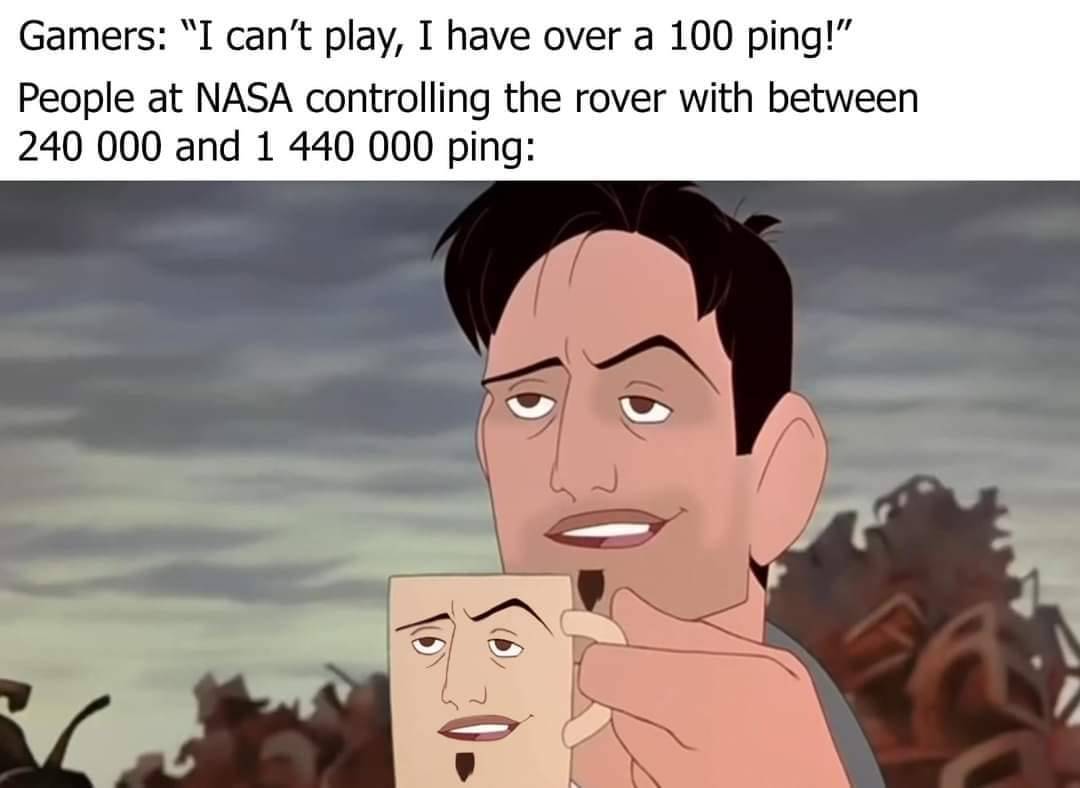this post was submitted on 06 Aug 2024
882 points (98.2% liked)
Science Memes
10923 readers
2888 users here now
Welcome to c/science_memes @ Mander.xyz!
A place for majestic STEMLORD peacocking, as well as memes about the realities of working in a lab.

Rules
- Don't throw mud. Behave like an intellectual and remember the human.
- Keep it rooted (on topic).
- No spam.
- Infographics welcome, get schooled.
This is a science community. We use the Dawkins definition of meme.
Research Committee
Other Mander Communities
Science and Research
Biology and Life Sciences
- !abiogenesis@mander.xyz
- !animal-behavior@mander.xyz
- !anthropology@mander.xyz
- !arachnology@mander.xyz
- !balconygardening@slrpnk.net
- !biodiversity@mander.xyz
- !biology@mander.xyz
- !biophysics@mander.xyz
- !botany@mander.xyz
- !ecology@mander.xyz
- !entomology@mander.xyz
- !fermentation@mander.xyz
- !herpetology@mander.xyz
- !houseplants@mander.xyz
- !medicine@mander.xyz
- !microscopy@mander.xyz
- !mycology@mander.xyz
- !nudibranchs@mander.xyz
- !nutrition@mander.xyz
- !palaeoecology@mander.xyz
- !palaeontology@mander.xyz
- !photosynthesis@mander.xyz
- !plantid@mander.xyz
- !plants@mander.xyz
- !reptiles and amphibians@mander.xyz
Physical Sciences
- !astronomy@mander.xyz
- !chemistry@mander.xyz
- !earthscience@mander.xyz
- !geography@mander.xyz
- !geospatial@mander.xyz
- !nuclear@mander.xyz
- !physics@mander.xyz
- !quantum-computing@mander.xyz
- !spectroscopy@mander.xyz
Humanities and Social Sciences
Practical and Applied Sciences
- !exercise-and sports-science@mander.xyz
- !gardening@mander.xyz
- !self sufficiency@mander.xyz
- !soilscience@slrpnk.net
- !terrariums@mander.xyz
- !timelapse@mander.xyz
Memes
Miscellaneous
founded 2 years ago
MODERATORS
you are viewing a single comment's thread
view the rest of the comments
view the rest of the comments

Radio waves always propagate at the speed of light, it's just that the effective speed of light in copper and glass fibre is lower than that in air/vacuum.
This means that if you have long cables at some distance you'll get a lower delay by using low earth orbit satellites like Starlink. Assuming a total distance via satellite of 1000km and the effective speed of light in glass fibre to be 2/3 c, cables over 667km will have a higher delay than the satellite.
Speed of light in fiberoptic cable is slower than c for a different reason. The light is in something close to vacuum, signals travel slower than c because the light doesn't follow a straight path, it zig zags bouncing off the walls.
A radio wave or laser in reasonable vacuum (in orbit for example) will be lower latency than a signal on a fiber link the same length
I'm expecting lower ping via starlink than fiber once starlink has laser links between satellites
Some fiber-optic cables are faster than others, because they're full of air. Hollow-core fibers have a large central cutout and/or a close hexagonal packing of smaller glass tubes. The latter are technically a "photonic crystal."